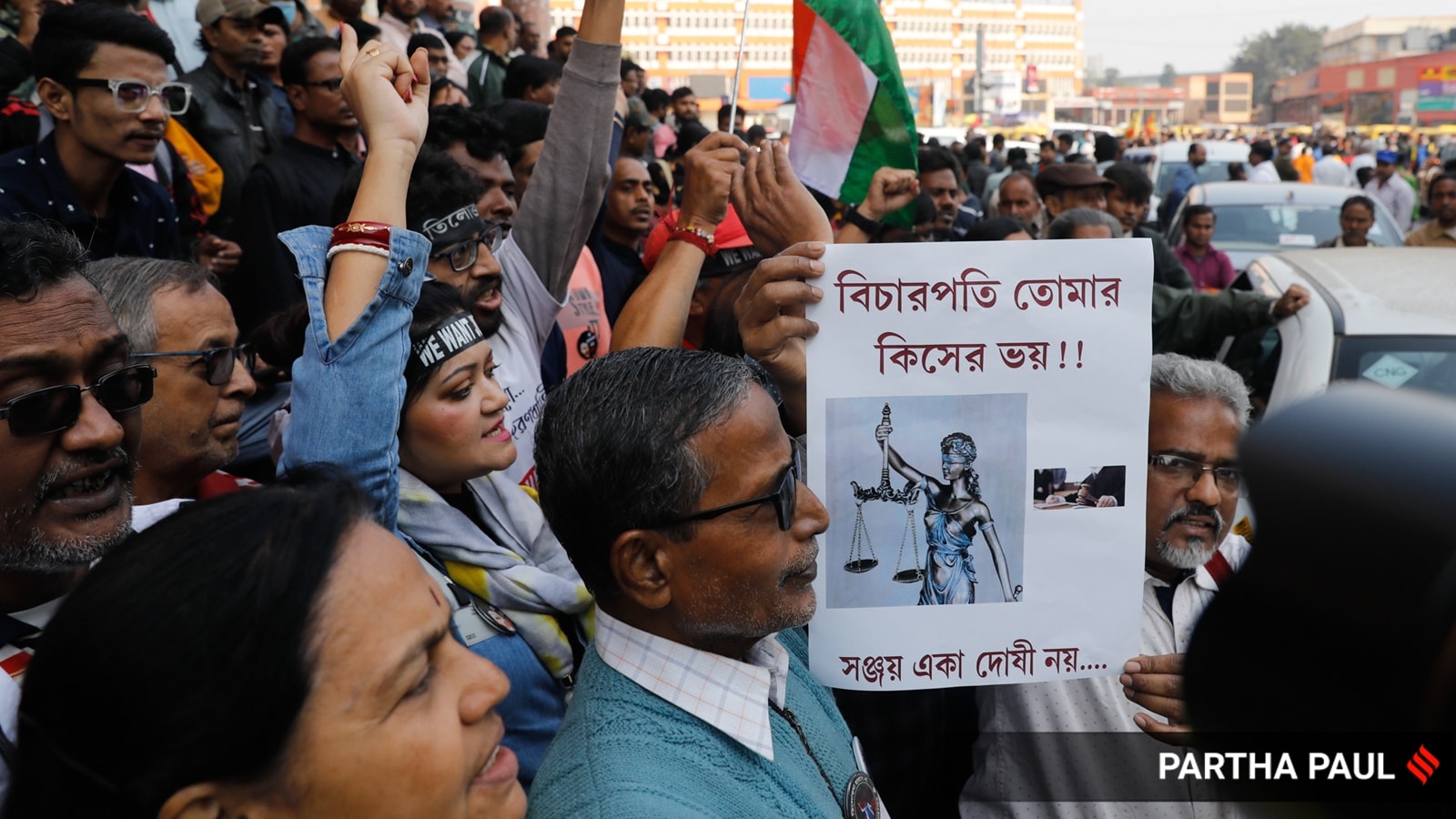 |
|
The recent conviction of Sanjay Roy for the rape and murder of a resident doctor at RG Kar Medical College in Kolkata marks a swift conclusion to a horrifying case that echoed the tragic events of the 2012 Delhi gang rape. While the speed of the trial and subsequent life imprisonment sentence are undoubtedly welcome, particularly given the widespread protests and national outcry that followed the crime, the case raises profound questions about the thoroughness of the investigation and the potential involvement of others. The sheer number of unanswered questions leaves a lingering sense of unease, highlighting systemic issues within the justice system and raising concerns about the safety of women and healthcare professionals in India.
The narrative surrounding the incident is riddled with irregularities. The initial investigation was criticized for its apparent delays and perceived mishandling of evidence. The alleged tampering of the crime scene, the premature renovations, and the delayed filing of the FIR fueled public anger and suspicion. The fact that only Sanjay Roy was identified from the CCTV footage capturing the movements of 68 people, coupled with conflicting statements regarding the location of the crime and the lack of conclusive biological evidence, points towards a possible cover-up or a far more complex scenario than presented by the prosecution. The transfer of the hospital superintendent and the resignation of the principal further add to the perception of a flawed response from the authorities.
Roy's claims of innocence and his assertion of an IPS officer's involvement are particularly unsettling. These allegations, while yet to be substantiated, serve to underscore the critical need for a comprehensive and transparent investigation into all aspects of the case. The fact that the CBI, despite its extensive investigation, failed to file chargesheets within the stipulated timeframe leading to the bail granted to key figures within the hospital, raises further concerns about the ability of law enforcement agencies to effectively address complex criminal cases, especially in the face of political pressure and potential systemic bias. The handling of the investigation not only compromised public confidence in the authorities but also perpetuated an environment of uncertainty and fear.
The case transcends the individual tragedy of the victim and speaks to a larger issue of women's safety and the accountability of institutions. The protests that followed the murder, while initially driven by outrage, quickly morphed into broader political movements, highlighting the deep-seated societal anxieties about gender-based violence and the inadequate response from the authorities. The protests, though disruptive, served as a crucial catalyst for demanding improved safety measures for healthcare workers and a more thorough investigation into the circumstances surrounding the crime. The establishment of a Supreme Court-mandated task force to address the safety of healthcare professionals is a welcome step, but its effectiveness hinges on genuine commitment to addressing systemic issues rather than simply providing a superficial response to public pressure.
The life imprisonment sentence for Sanjay Roy, while delivering some sense of closure to the victim's family and the public, ultimately serves as a stark reminder of the shortcomings in the justice system. The unanswered questions surrounding the case remain a potent symbol of the challenges India faces in providing adequate protection for women and holding those responsible for heinous crimes accountable. The swiftness of the trial should not overshadow the lingering doubts about the completeness of the investigation. A truly just outcome requires not only swift punishment but also a comprehensive exploration of all the unanswered questions, a full accounting of institutional failures, and a long-term commitment to preventing similar tragedies in the future. The case underscores the need for improved investigative techniques, stronger safeguards against evidence tampering, and increased transparency in the judicial process to foster trust and accountability within the system.
Source: In R G Kar case, justice is not delayed. But probe hasn’t answered all questions
